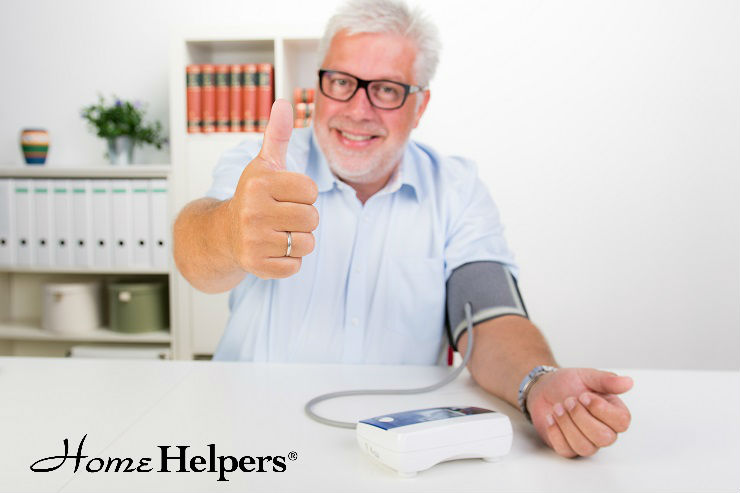We live in an age where high blood pressure is incredibly common, and seniors are no different than the rest of the population. If a senior loved one in your life is dealing with high blood pressure, you may be wondering how to manage it properly. It all starts with making sure they have regular checkups by their doctor so it can be diagnosed quickly.
Here are a few tips that will help them manage it on their own as much as possible, and also things you as a caretaker can help them do. It doesn’t always have to involve medication, but that depends on the person.
Lose Weight — The number one cause for high blood pressure is being overweight. America is the fattest nation on earth and it leads to chronic illness, such as high blood pressure and diabetes. If your loved one is struggling to keep their weight under control, take the necessary steps to help them get it turned around. ALWAYS do it under the care of their physician.
Exercising — Exercising needs to be done in conjunction with a healthy diet to get the best results. It can be difficult to know what kind of activity a senior can safely do, but it is important that they get some kind of physical movement regularly.
Eat Healthy — This applies to all of us! We need good food in order to stay well. But for those with high blood pressure, certain foods are triggers and need to be avoided. Low fat, low cholesterol diets are important. Also, taking in more potassium and less sodium.
Eat Less Salt — High sodium in the diet can cause huge problems with high blood pressure and is often the first thing a doctor will talk about. It’s not just adding table salt when you eat; it’s also reading labels and avoiding huge sodium content. Packaged food of any kind is almost always high in sodium and should be avoided. Fresh, raw, organic plant-based food is the best way to change the eating patterns. A great way to get your senior adult started is by replacing salt with other spices and herbs.
Reduce Stress Levels — Make sure your loved one is getting enough rest and not carrying around worry over things in their lives. Stress can wreak havoc in our bodies and cause way more serious diseases. Engaging in things like yoga, meditation, walks outside, gardening will be wonderful to reduce stress. Even finding hobbies they enjoy or working with their hands can be very relaxing. Whether it’s needlepoint or coloring or working puzzles and word games, it’s all great for bringing down stress levels!
Reduce Caffeine — While caffeine doesn’t always cause blood pressure problems, it can contribute to it. It will cause some stress in your body since it is a stimulant, so your senior loved one should reduce the amount of caffeine they are taking in. If you aren’t sure whether or not caffeine is playing a role in high blood pressure, try logging the amount and time of when they drink coffee. Check the blood pressure before and after the coffee has been consumed and start seeing if there are any differences.
For more information and tips on managing blood pressure in your senior loved one, please contact us today!
Home Helpers is a locally-owned, trusted home health care agency and offers quality, compassionate senior in-home care services including home care assistance, personal care, companion care, respite care, 24-hour live-in care, Alzheimer's & dementia care, Parkinson's care as well as homemaker services in Downers Grove, Addison, Glendale Heights, Glen Ellyn, Lisle, Wood Dale, Bensenville, and Plainfield, Illinois.
Legal Disclaimer
This blog provides general information and discussions about medicine, health, and related subjects. The words and other content provided in this blog, and in any linked materials, are not intended and should not be construed as medical advice. If the reader or any other person has a medical concern, he or she should consult with an appropriately-licensed physician or other healthcare worker.
Never disregard professional medical advice or delay in seeking it because of something you have read on this blog or in any linked materials. If you think you may have a medical emergency, call your doctor or 911 immediately.
The views expressed on this blog and website have no relation to those of any academic, hospital, practice or other institution with which may have been mentioned or linked to in the article.

